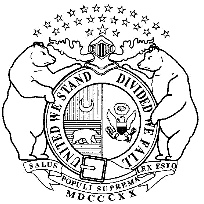
Supreme Court of Missouri
en banc
September 21, 2001
Effective January 1, 2002
IN RE: REVISIONS TO MAI-CIVIL
TABLE OF INSTRUCTIONS
MAI 2.01 EXPLANATORY INSTRUCTION FOR ALL CASES
(Committee Comment – Revision)
ORDER
1. Revisions of a previously approved MAI-CIVIL Committee Comment as listed above, having been prepared by the Committee on Jury Instructions – Civil and reviewed by the Court, are hereby adopted and approved.
2. The Committee Comment revised as set forth in the specific exhibits attached hereto must be used on and after January 1, 2002, and may be used prior thereto; any such use shall not be presumed to be error.
3. It is further ordered that this order and the specific exhibits attached hereto shall be published in the South Western Reporter and the Journal of The Missouri Bar.
Day – to – Day
______________________________
STEPHEN N. LIMBAUGH, JR.
Chief Justice
2.01 [2002 Revision] Explanatory Instruction for All Cases
Committee Comment (2002 Revision)
(Approved September 21, 2001; Effective January 1, 2002)
Directions or admonitions given by a trial judge to a jury during the course of trial are technically not instructions. Examples of such directions or admonitions include a direction not to visit the scene of an accident or an oral repetition of the admonition to refrain from discussing the case during a recess. Considerable discretion is afforded to the trial judge, subject to appropriate requests or objections of counsel, to determine the scope and frequency of such directions or admonitions. An appropriate admonition may be in the following form, and may be given orally:
- Justice requires that you not make up your mind about the case until all of the evidence has been seen and heard. You must not discuss this case among yourselves or with anyone else or comment on anything you hear or learn in this trial until the case is concluded and you retire to the jury room for your deliberations. Also, you must not remain in the presence of anyone who is discussing the case when the court is not in session.
Other appropriate oral admonitions or directions to the jury may be formulated and given by the trial judge as determined in light of the particular facts or circumstances of a given case.
Supreme Court Rule 69.03 provides:
- Juror Note-taking
If the court allows juror note-taking, the court shall supply each juror with notebooks and pencils. Jurors shall not have their notes during recesses but may use their notes during deliberations. The court shall collect all juror notes immediately before discharge of the jury. After the jury is discharged, the court shall destroy the notes promptly without permitting their review by the court or any other person. Juror notes shall not be used to impeach a verdict.
Rule 70.02(f) requires that the final instructions of the court be given to the jury in writing. While Rule 70.02 does not explicitly require that each juror be provided with a copy of the final instructions, such approach is implicitly permitted. In its report to the Supreme Court of October 2000, the Civil Jury Study Committee recommended “that each juror be given a copy of the instructions before instruction reading, final argument, and deliberation.” (Emphasis supplied.) That committee also noted that juror “understanding increased significantly when each juror received his or her own copy of the instructions.” The MAI Committee encourages compliance with this recommendation whenever feasible.